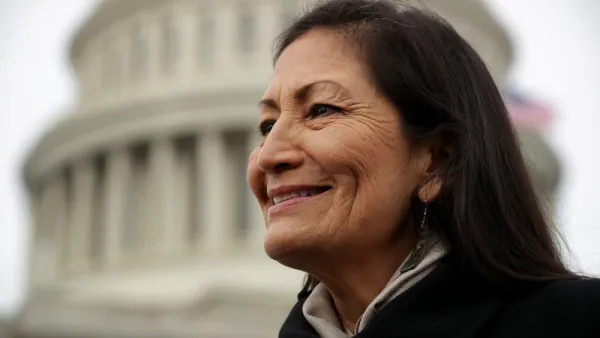A New York Times investigation into the Feb. 2 North Carolina coal ash spill by Duke Energy is turning up startling information into the role, or lack of, played by the Department of Environment and Natural Resources in safeguarding the environment.
According to the investigation, orders were given "on behalf of North Carolina’s new Republican governor and conservative lawmakers" to the state's reguatory agency to essentially stop doing their job in a meeting last June.
“The General Assembly doesn’t like you,” an official in the Department of Environment and Natural Resources (DENR) told supervisors...“They cut your budget, but you didn’t get the message. And they cut your budget again, and you still didn’t get the message,” writes Trip Gabriel about what employees were told according to three people in the meeting, two of whom took notes. “If you don’t like change, you’ll be gone.”
The spill at Duke's Dan River Stream Station began on Feb. 2, and stll hadn't been plugged when we posted it on Feb. 8. It spilled 39,000 tons of coal ash and "coated the river bottom 70 miles downstream and threatened drinking water and aquatic life, (and) drew attention to a deal that the environmental department’s new leadership reached with Duke last year over pollution from coal ash ponds," writes Gabriel. That deal is under federal investigation as we noted last month.
Facing increasing scrutiny and criticism, the department said late Friday (Feb. 28) that the company (Duke Energy) would be cited for two formal notices of violating environmental standards in connection with the spill.
In addition to the coal ash spill coming from Duke Energy’s Dan River Steam Station, DENR detected a less serious leak at the Duke Energy power plant in Rutherford County.
Instead of plaing watchdog, DENR was transformed into a customer service agency, "meaning issuing environmental permits for businesses as quickly as possible."
"Current and former state regulators said the watchdog agency, once among the most aggressive in the Southeast, has been transformed under Gov. Pat McCrory into a weak sentry that plays down science, has abandoned its regulatory role and suffers from politicized decision-making," writes Gabriel.
Since Republicans took control of the General Assembly in 2011 and the governor’s mansion last year, they have worked to reduce or eliminate what "Republicans call 'job-killing' environmental regulations," writes Gabriel. Is it no accident that the spill occurred at a facility owned by Duke Energy, the nation's largest utility?
Watch "Aftermath of Coal Ash Pond Rupture", an animated graphic by the Center for Energy, Environment and Sustainability at Wake Forest University (that) shows the aftermath of the coal ash pond rupture at Duke Energy’s Dan River Steam Station.
FULL STORY: Ash Spill Shows How Watchdog Was Defanged

Analysis: Cybertruck Fatality Rate Far Exceeds That of Ford Pinto
The Tesla Cybertruck was recalled seven times last year.

National Parks Layoffs Will Cause Communities to Lose Billions
Thousands of essential park workers were laid off this week, just before the busy spring break season.

Retro-silient?: America’s First “Eco-burb,” The Woodlands Turns 50
A master-planned community north of Houston offers lessons on green infrastructure and resilient design, but falls short of its founder’s lofty affordability and walkability goals.

Test News Post 1
This is a summary

Analysis: Cybertruck Fatality Rate Far Exceeds That of Ford Pinto
The Tesla Cybertruck was recalled seven times last year.

Test News Headline 46
Test for the image on the front page.
Urban Design for Planners 1: Software Tools
This six-course series explores essential urban design concepts using open source software and equips planners with the tools they need to participate fully in the urban design process.
Planning for Universal Design
Learn the tools for implementing Universal Design in planning regulations.
EMC Planning Group, Inc.
Planetizen
Planetizen
Mpact (formerly Rail~Volution)
Great Falls Development Authority, Inc.
HUDs Office of Policy Development and Research
NYU Wagner Graduate School of Public Service


























